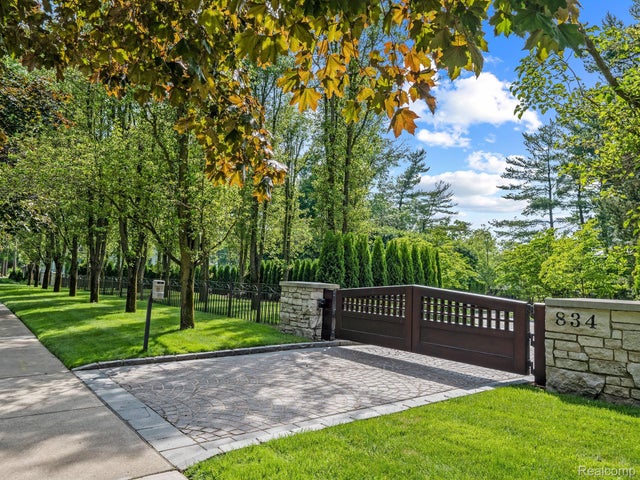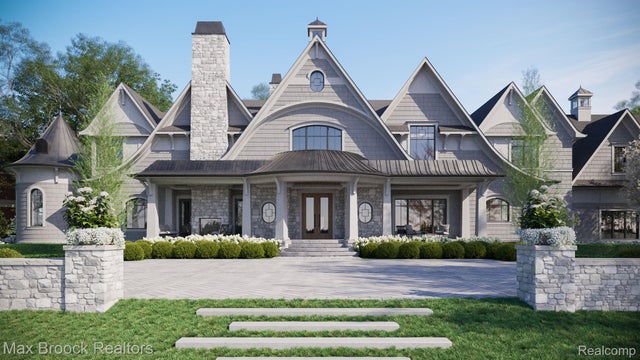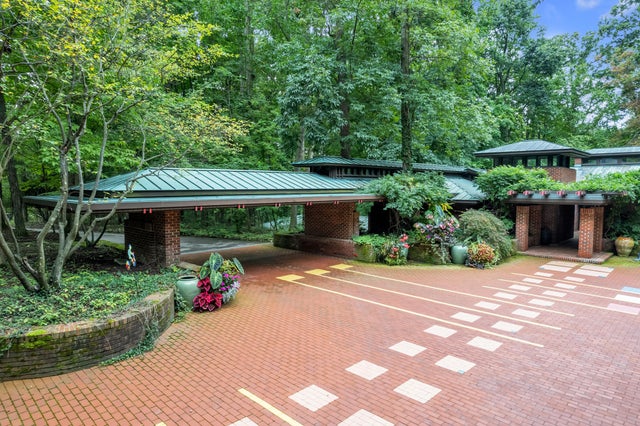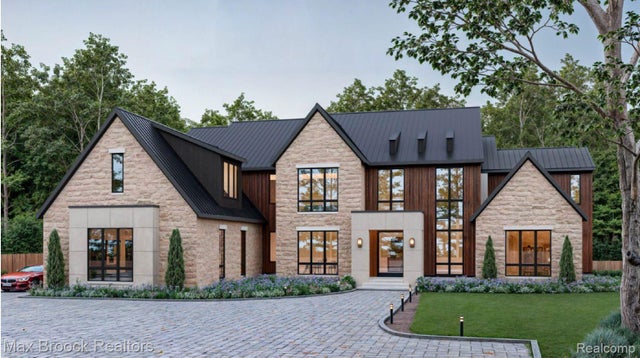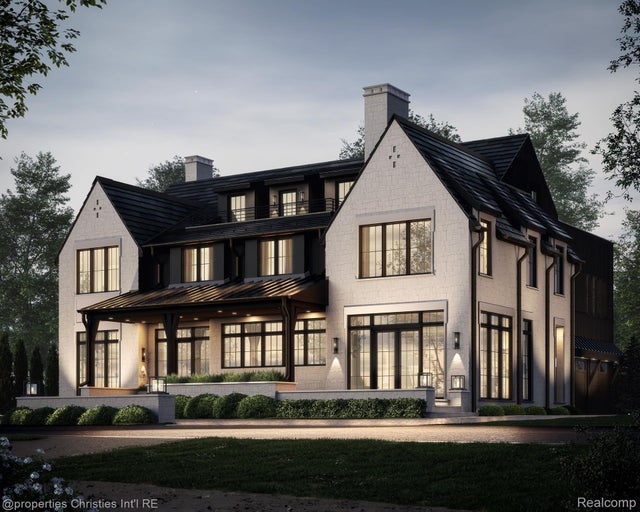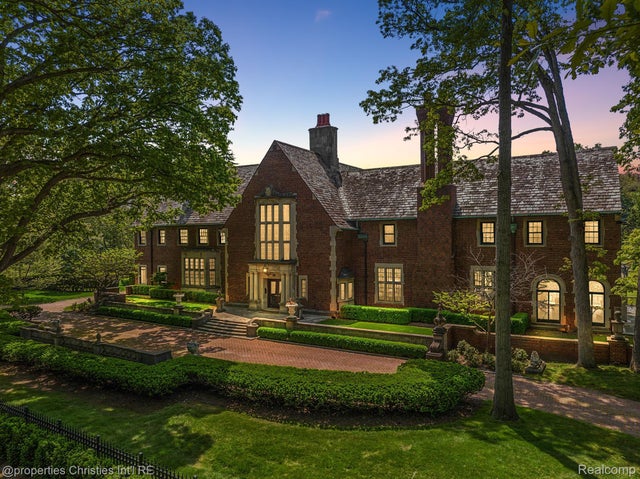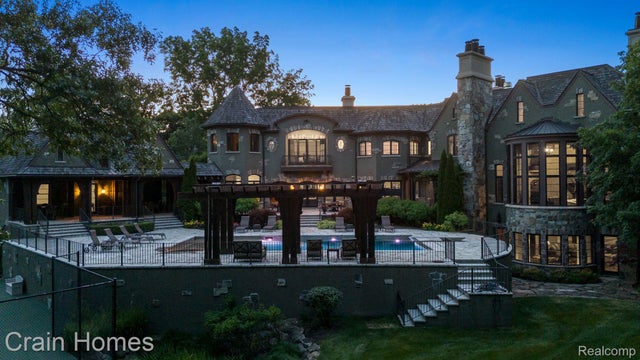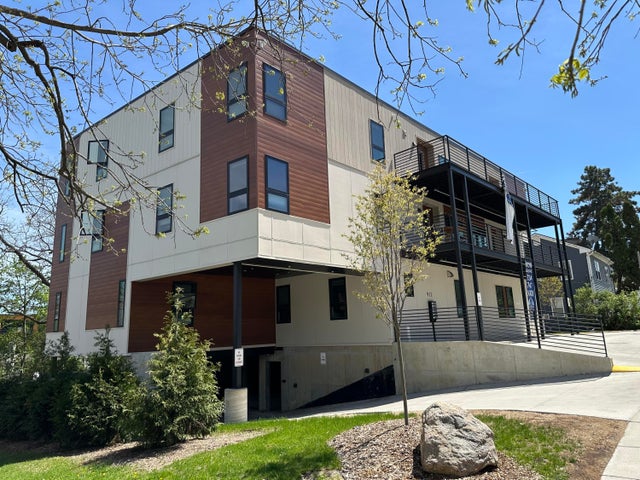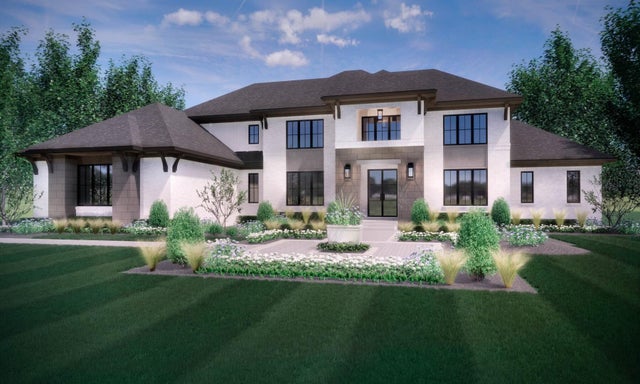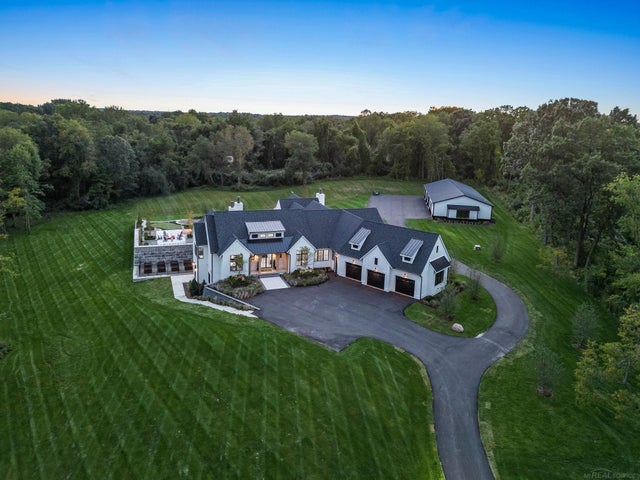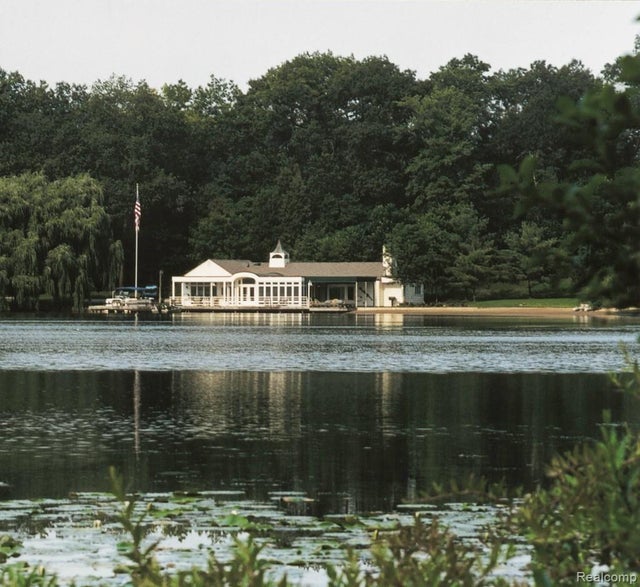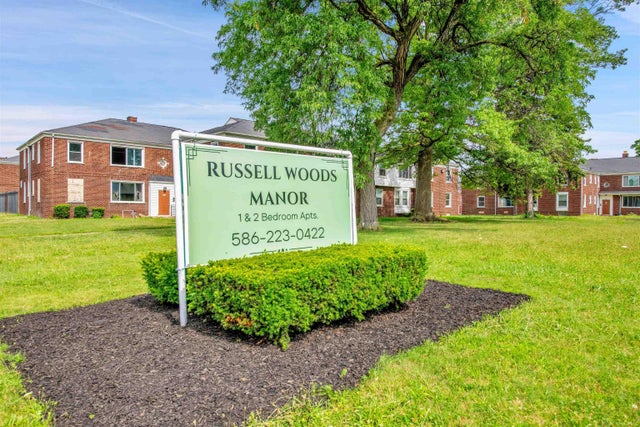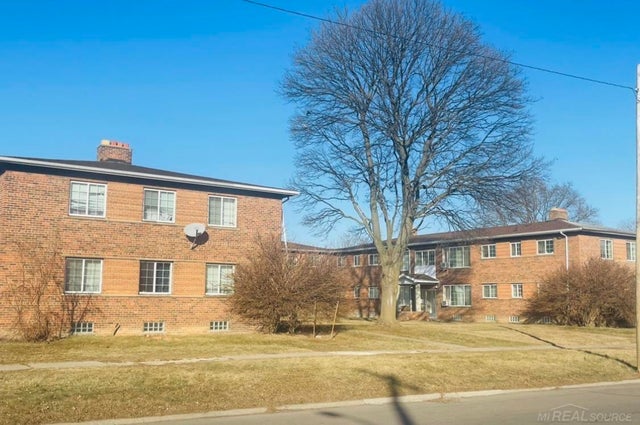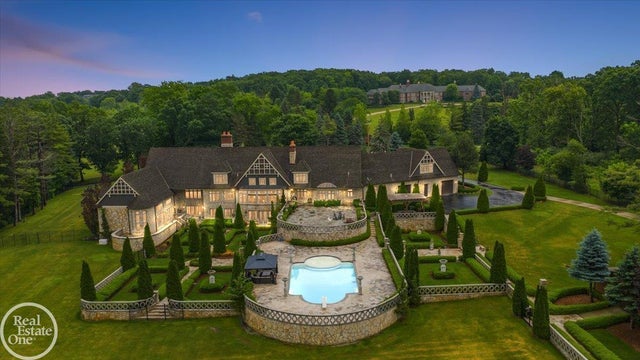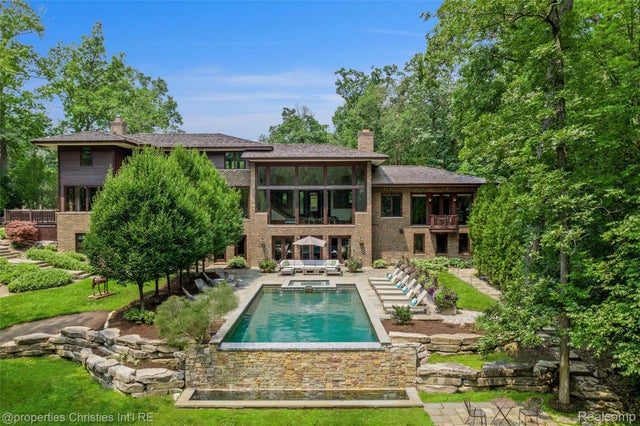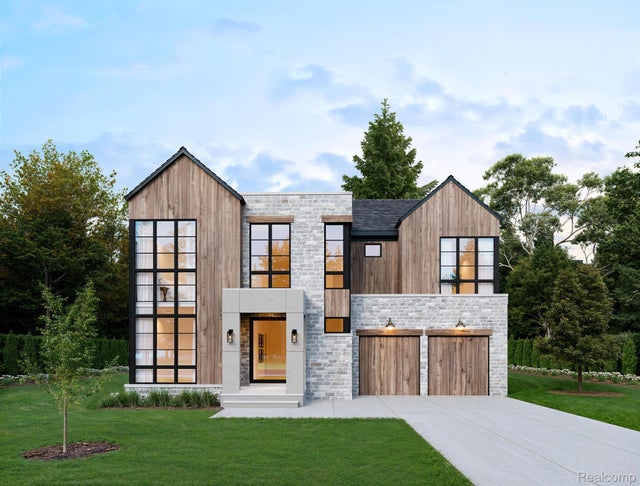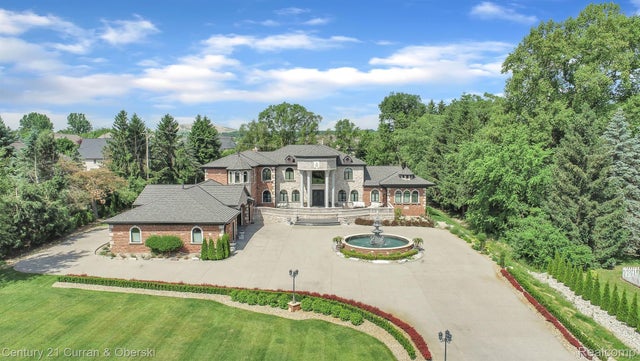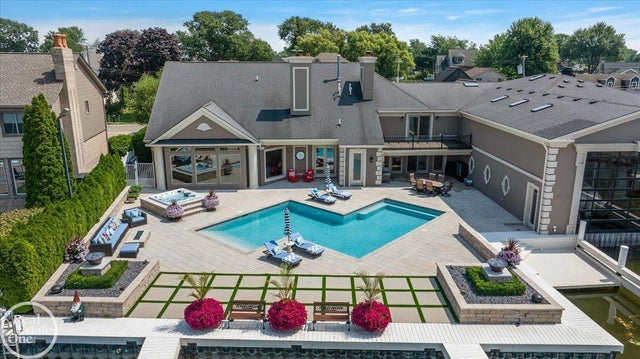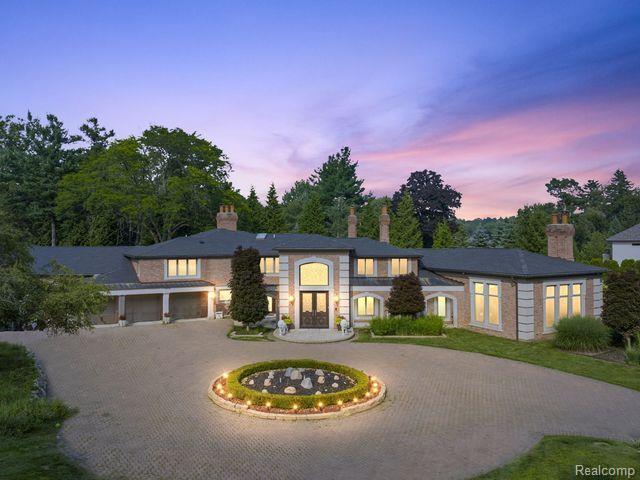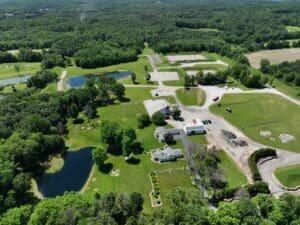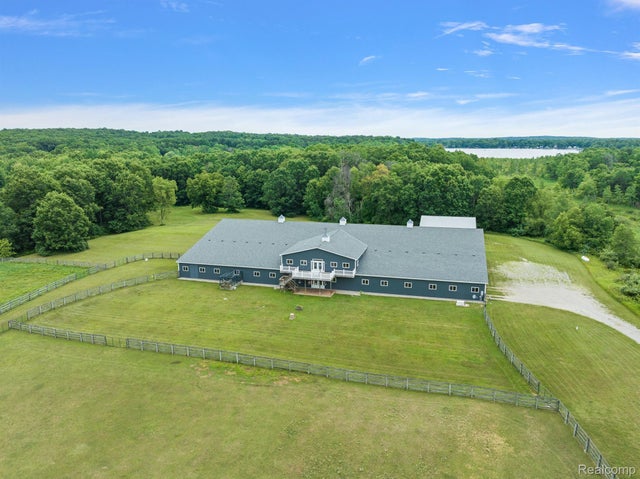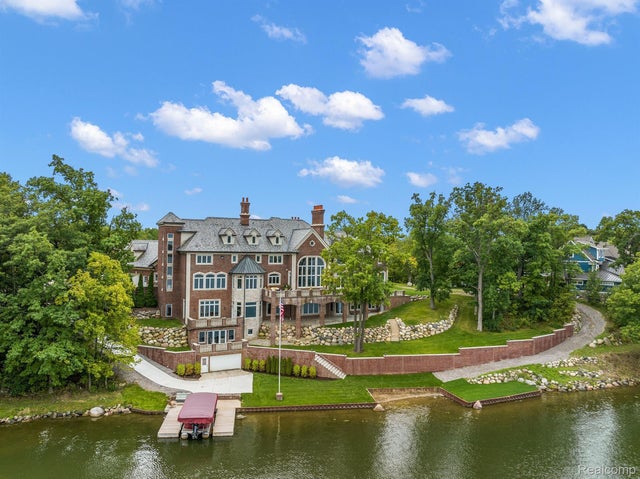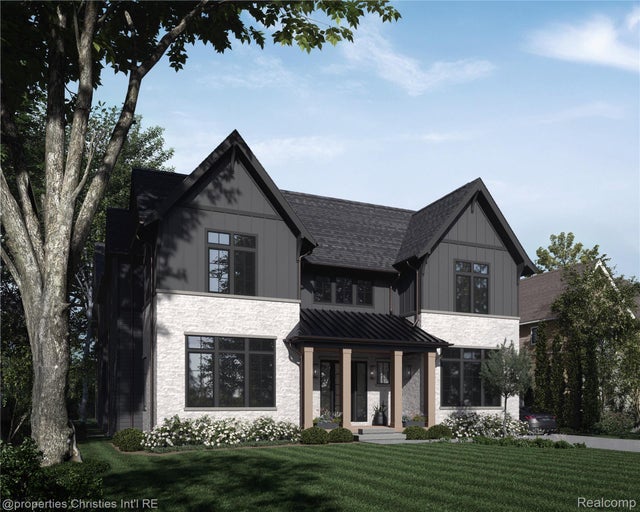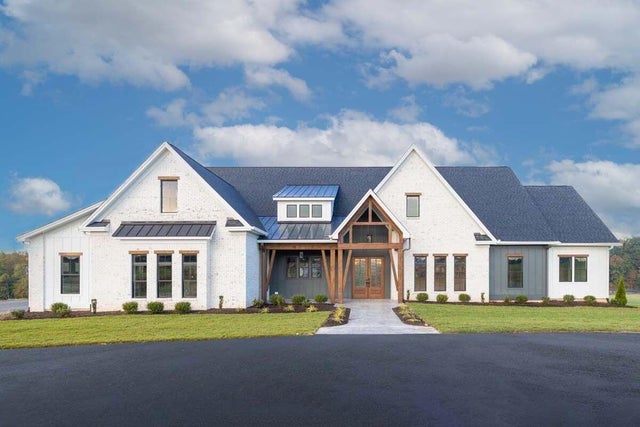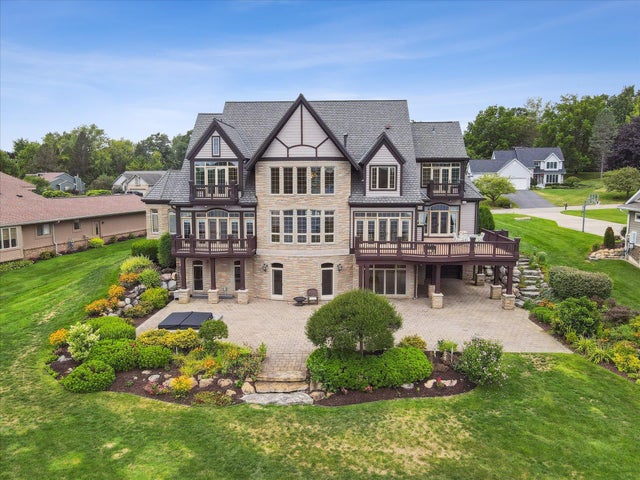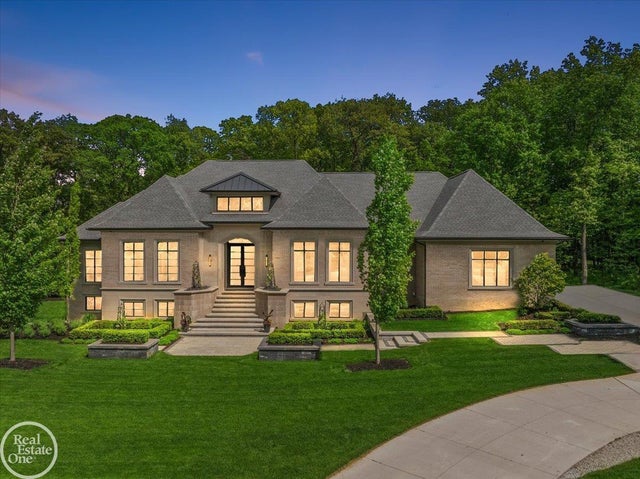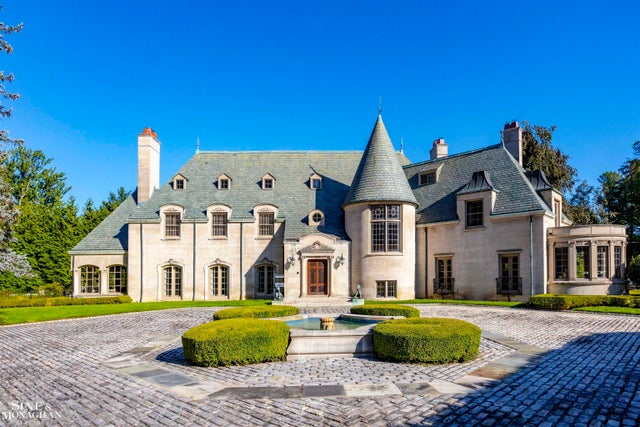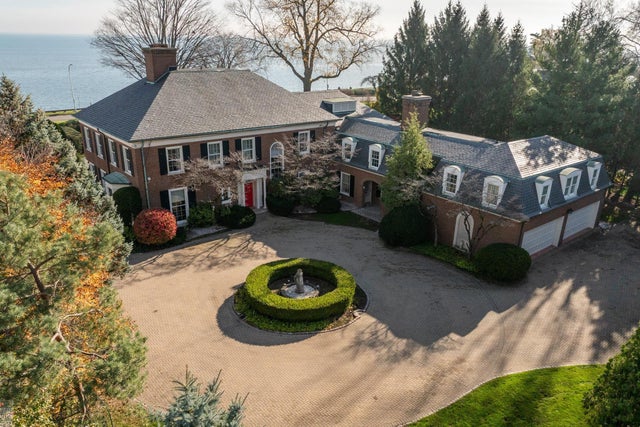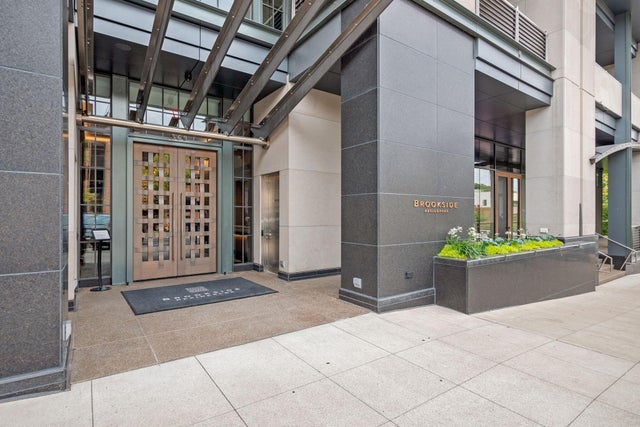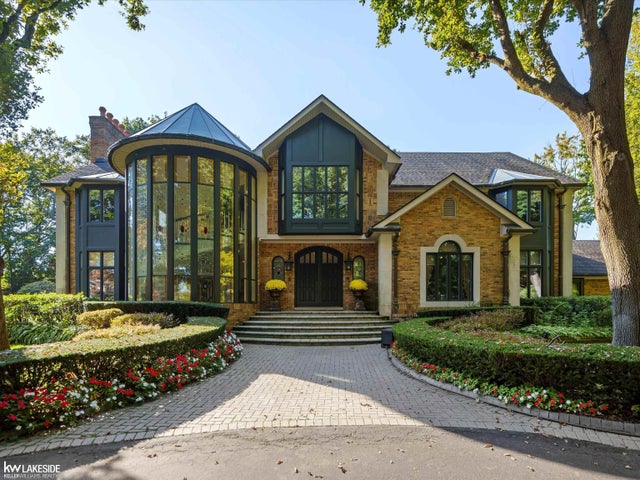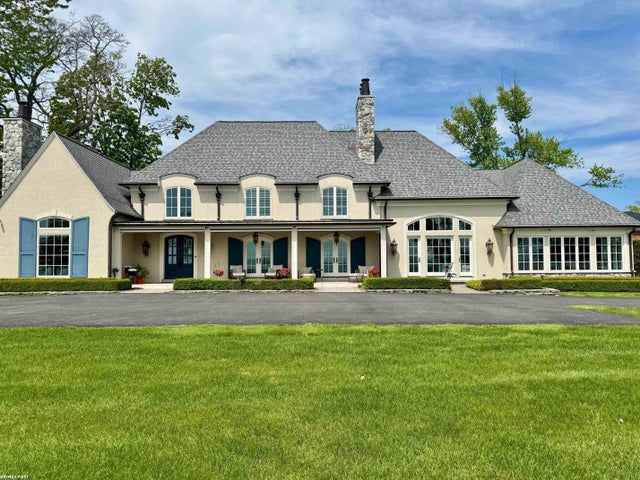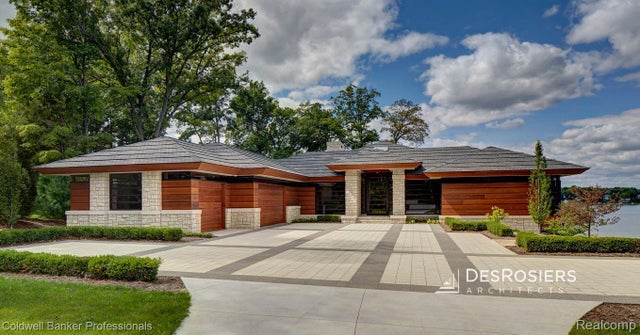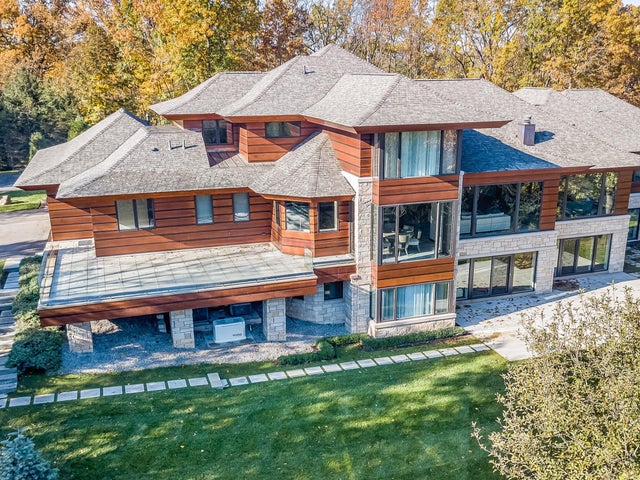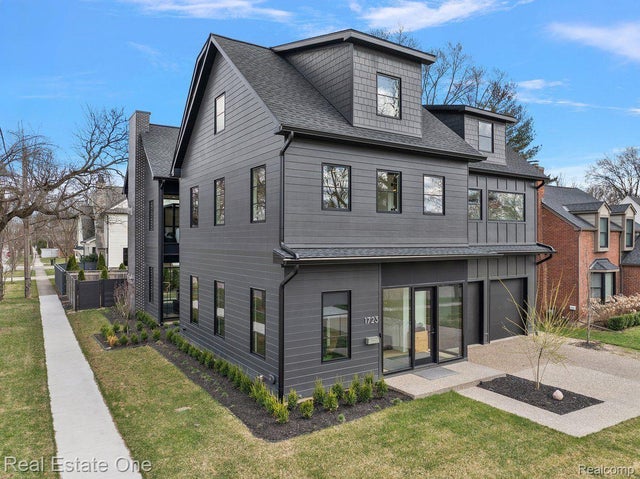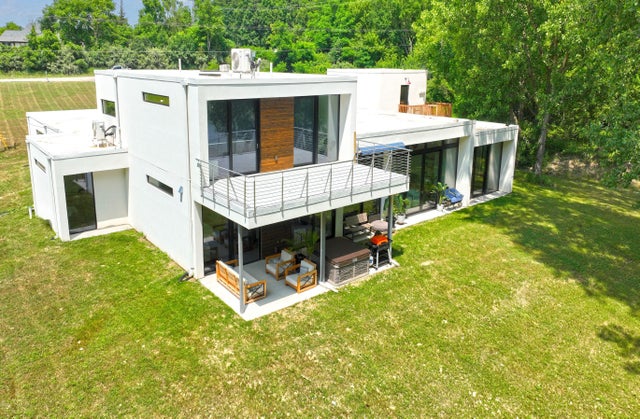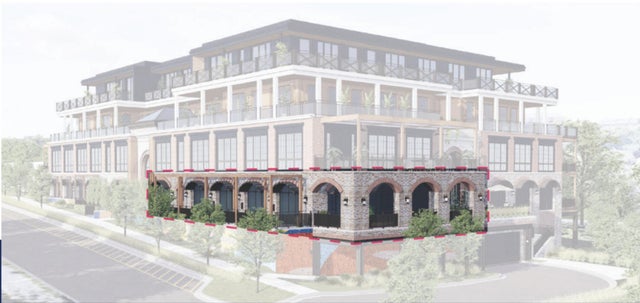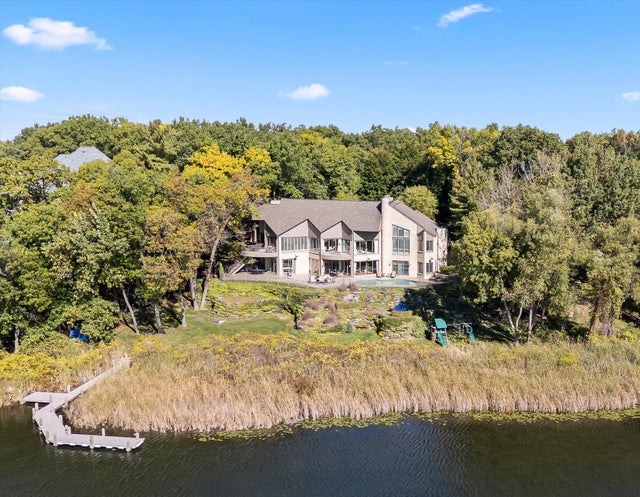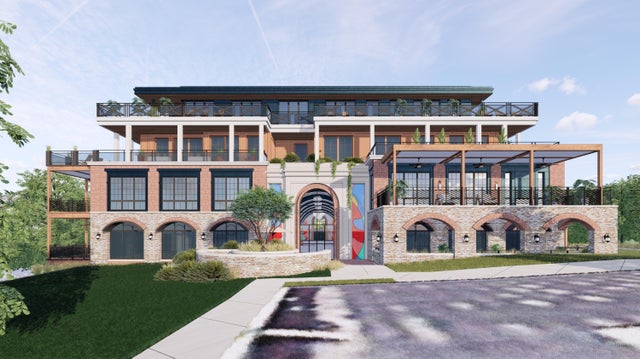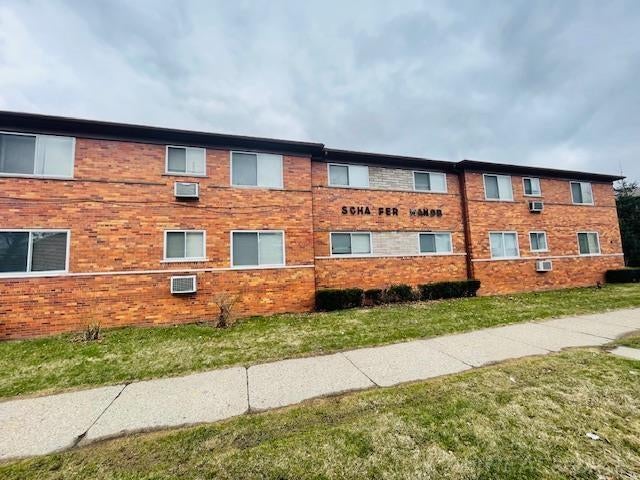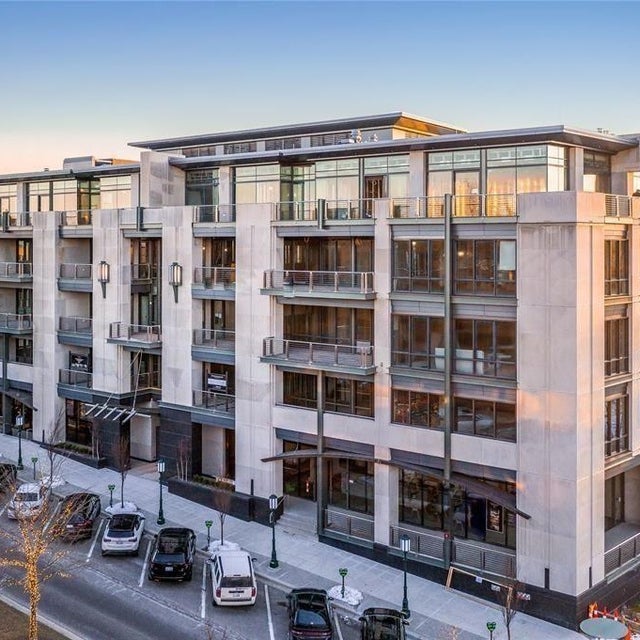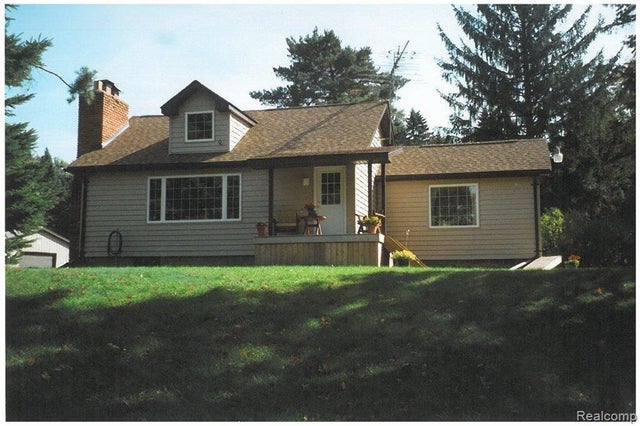Imagine a nearly century-old Detroit schoolhouse buzzing with new life. Once filled with students, the former Thomas Jefferson Intermediate School in Midtown sat quiet and empty for almost a decade. Now, that grand brick building at 950 Selden Street is poised for a dramatic comeback, not as a school again, but as the Jefferson Hub, a $48 million innovation center for entrepreneurs and small businesses. It’s the kind of transformation lifelong Detroiters love to see: historic architecture saved and repurposed to fuel the city’s future. This fall, as the Jefferson Hub (fondly nicknamed the “J Hub”) opens its doors, it promises to blend Detroit’s rich past with its ambitions as a hub of innovation. In a city known for comebacks, here’s why this project has locals talking and why it matters for families, entrepreneurs, and real estate pros alike.
If you’re curious about the unexpected people driving Detroit’s rebirth, here’s how doctors are becoming developers and reshaping the city’s future.
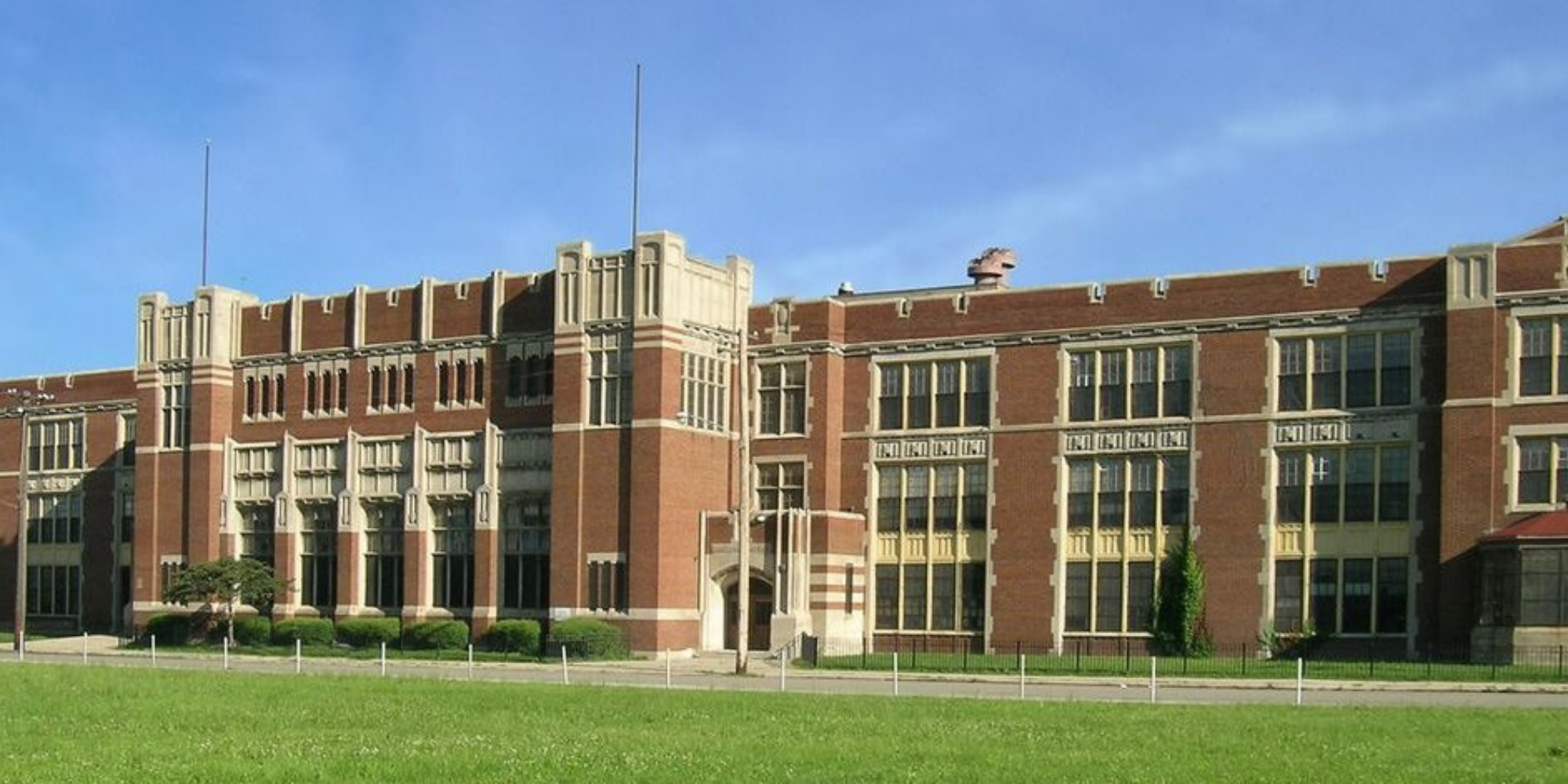 detroitisit, instagram
detroitisit, instagram
A Schoolhouse with a Second Act in Midtown Detroit
To understand the excitement around the Jefferson Hub, it helps to know the story of the building itself. Thomas Jefferson Intermediate School was built in 1922 in what’s now Midtown Detroit, not far from Wayne State University and the Detroit Institute of Arts. For decades, neighborhood kids filled its classrooms, until the mid-20th century, when construction of the John C. Lodge Freeway literally cut through the community and the school closed. The stately structure eventually got a second chance in 2008 as a charter called Experiencia Preparatory Academy, but that, too, was short-lived; the academy closed in 2016, leaving the building vacant once again. By the late 2010s, the empty school was an eyesore and a concern for the community. “It was going to be an eyesore and a detriment to the neighborhood to sit here empty,” recalls Marcia Ventura, a senior vice president at Invest Detroit. Rather than let a beautiful old building go to waste, local stakeholders began plotting a new future for 950 Selden.
In 2018, nonprofit Invest Detroit, in partnership with community development group Midtown Detroit Inc., purchased the 2.9-acre property with a vision of turning it into a collaborative business campus. They saw potential to create something much needed in the city: an innovation hub for early-stage companies and community organizations, all under one roof. After years of planning (and some pandemic-related delays), that vision is finally becoming reality. The school has been rebranded as the Jefferson Hub, an entrepreneurial center designed to foster new ventures, creativity, and community in the heart of Midtown.
A quick journey through the building’s history:
- 1922 – A Neighborhood School: Thomas Jefferson Intermediate opens its doors on Selden Street, serving local middle-schoolers in what was then the Cass Corridor. The handsome brick building features a gymnasium, auditorium, library, and classic classroom spaces.
- 1950s – Closure Amid Change: With the construction of the John C. Lodge Freeway slicing through Midtown, the school shuts down. The once-vibrant halls fall silent as students are relocated and the building’s purpose fades.
- 2008 – Brief Revival: After decades of various uses and vacancy, the site is renovated and reopens as Experiencia Preparatory Academy, a public charter school. The old schoolhouse gets a facelift and again fills with youth, but only for a while.
- 2016 – Vacant Again: Experiencia Prep closes, and Thomas Jefferson School goes dark once more. Neighbors worry the historic structure will deteriorate or attract blight.
- 2018 – A New Owner, New Vision: Invest Detroit (through its real estate arm) and Midtown Detroit Inc. acquire the property, determined to save the building by transforming it into an innovation and co-working center. Plans are drawn for a modern workspace that preserves the school’s character.
- 2025 – Jefferson Hub Debuts: After overcoming construction setbacks and a pandemic, the Jefferson Hub is set to officially open in fall 2025. The former schoolhouse begins its new life as a 115,000-square-foot hub for entrepreneurs, nonprofits, and small businesses.
Through this transformation, the Jefferson Hub aims to honor the building’s legacy while equipping it for a new generation. “We want people, when they’re inside, to know where they are in relation to the former school,” says Invest Detroit’s Marcia Ventura – and indeed, the renovation has kept many unique vintage touches intact. At the same time, the space has been updated with all the modern amenities needed to nurture a thriving business community. It’s a true second act for an old Detroit landmark, one that bridges the city’s storied past and its innovative future.
.png) bamboocowork, instagram
bamboocowork, instagram
Inside the Jefferson Hub: Historic Charm Meets Modern Workspaces
Walking into the Jefferson Hub, visitors might still recognize hints of the old school – and that’s by design. Historic architectural details have been carefully preserved, giving the workspace a distinctive Detroit flavor. The original gymnasium’s hardwood floors gleam once more (with basketball hoops and scoreboards repurposed as decor), and the wood-paneled library remains untouched as a nod to the building’s scholarly past. Even the former locker rooms still sport their classic tiling. These nostalgic elements are paired with creative renovations: one of the school’s long-empty indoor swimming pools, for example, has been converted into a unique event space with tiered seating for presentations and gatherings. And where classrooms once stood, there’s now a 5,000-square-foot new mezzanine level adding more office area to the original footprint, blending old structure with new construction in a seamless way.
While the character of the 1922 building shines through, the Jefferson Hub is every bit a 21st-century workplace. The redesign introduced flexible office suites, open-layout co-working areas, and a range of shared amenities meant to make daily work both productive and enjoyable. Think glass-walled meeting rooms alongside exposed brick, or cozy lounge nooks set against vintage classroom chalkboards, the atmosphere is meant to spark creativity. High-speed fiber-optic internet runs throughout, and the entire building is equipped with state-of-the-art technology infrastructure to meet modern business needs.
Some notable features and amenities at the Jefferson Hub include:
- Collaborative Spaces: Nine conference rooms and eleven huddle rooms provide plenty of spots for meetings, brainstorming, or private calls. There are also phone booths for private conversations and boardroom-style meeting areas.
- Shared Kitchen & Lounges: A common kitchen with beverage bars is available for all tenants, complete with coffee, cold brew, and tea on tap to keep the creative juices flowing. Multiple lounge areas and break-out spaces are scattered throughout, encouraging people to step out of their offices and mingle.
- Event Center: An 85-seat event center has been built into one of the former large spaces (once an auditorium or pool), offering a forum for workshops, speaker series, and community gatherings. Tenants and local groups will be able to hold events here without leaving the building.
- Training Rooms & Outdoor Courtyard: Dedicated classrooms now serve as training and seminar rooms for business education sessions. Plus, a three-season outdoor courtyard provides fresh-air meeting space and a spot to relax or host events in warmer months.
- On-Site Parking: In a nod to practicality, the Hub offers on-site parking, a valuable perk in Midtown, making it easy for tenants and visitors to come and go. A former side street (Frank Street) was even converted into landscaped parking and public plaza space to improve access and street life.
- Tech-Ready Facilities: From high-speed Wi-Fi and fiber connectivity to modern security and presentation equipment, the infrastructure is ready for tech startups and remote work alike. Tenants don’t have to worry about the basics, it’s plug-and-play and focus on your business.
Perhaps one of the most exciting aspects for the day-to-day vibe is the co-working community space run by Bamboo Detroit. Bamboo is a homegrown co-working company with a strong following among Detroit’s entrepreneurs, known for its friendly, inclusive atmosphere. At the Jefferson Hub (branded “Bamboo Midtown”), Bamboo will operate a large shared workspace, fittingly, located in the former school gymnasium with its lofty ceiling. Members of Bamboo Midtown will have 24/7 secure access, options for month-to-month memberships, and of course access to all the Jefferson Hub amenities. Because Bamboo already runs other co-working sites (including one downtown), tenants at the J Hub automatically join a statewide network, their membership gets them into any Bamboo location across Michigan, along with member perks and community events. That means a small business based in the J Hub can touchdown in Grand Rapids or Ferndale at a Bamboo space and feel right at home, which is a nice bonus.
Amanda Lewan, co-founder of Bamboo Detroit, says they plan to actively program the space with events and networking opportunities. “I think where we thrive at Bamboo is really programming our spaces… we curate events,” Lewan notes, describing how they’ll gather feedback from the community to host relevant workshops and socials. Uniquely at this location, any Jefferson Hub tenant or Bamboo member will have access to the event spaces and training rooms, creating a vibrant, collaborative environment day in and day out. In other words, the Jefferson Hub is designed to be more than just offices, it’s a place where you might bump into a fellow entrepreneur in the lounge, catch a lunchtime speaker in the event center, or share coffee with a mentor in the courtyard. As Marcia Ventura of Invest Detroit puts it, “the whole idea is to bring people out of their office to meet each other in the corridors and common areas, to share ideas and create community.” It’s workspace with a social twist, carefully crafted to spark connections.
If you’re exploring Midtown after checking out the Jefferson Hub, here’s a guide to the neighborhood’s must-try restaurants, cafés, and bars.
Fueling Detroit’s Entrepreneurial Dreams: Invest Detroit’s Vision
The Jefferson Hub isn’t an isolated real estate project; it’s the latest extension of Invest Detroit’s broader mission to boost economic growth and opportunity in the city. Invest Detroit, the anchor tenant and driving force behind the J Hub, is a nonprofit organization that wears many hats in local development. It acts as a lender and investor for projects that revitalize neighborhoods, and through its venture capital arm (ID Ventures) it provides early-stage funding to Michigan-based tech startups and entrepreneurs. In short, Invest Detroit is all about investing in Detroit’s people and places, especially in areas that traditional financing might overlook.
For years, Invest Detroit has supported projects in “catalytic commercial corridors” through programs like the Strategic Neighborhood Fund, and it has helped small businesses with coaching and loans citywide. However, the Jefferson Hub is the organization’s first foray into creating a physical innovation hub of its own, a place where its various efforts to nurture businesses can come together under one roof. “Moving our team into the Jefferson Hub is more than just occupying a new space, it’s a commitment to the neighborhood and to creating an ecosystem where Detroit entrepreneurs can thrive,” says Dave Blaszkiewicz, CEO of Invest Detroit. In other words, Invest Detroit isn’t just the landlord here; they’re a participant and community builder on-site. By locating their offices at 950 Selden, they’re signaling confidence in Midtown’s future and making themselves accessible to the startups and organizations they support.
What’s the big idea behind the J Hub? It’s to create a diverse ecosystem of businesses that can “provide informal mentorship” to each other just by coexisting and collaborating in the same space. Marcia Ventura explains that they want a healthy mix of tenants, from scrappy new startups and solo entrepreneurs to established nonprofits and even some traditional for-profit companies, because that diversity can be a strength. “People meet and talk in the hallways, and it just provides, through examples, some mentorship on how for-profit or established companies operate,” Ventura says of the planned tenant mix. By working near each other, a nonprofit director might swap insights with a tech startup founder, or a marketing firm might give pointers to an emerging social enterprise. These chance interactions can spark ideas and partnerships. Invest Detroit is essentially curating a community where up-and-coming talent can learn from seasoned pros, and where anyone with a dream can find support and inspiration right down the hall.
To that end, the Jefferson Hub is open to a wide range of tenants. The project is actively leasing space to nonprofits, mission-driven companies, small businesses, and early-stage startups across Metro Detroit. About 40 tenant companies are expected to call the Hub home once it’s fully occupied, likely by the end of 2026, with roughly 30 of those operating out of the co-working and small-office areas. Confirmed early tenants already reflect that cross-sector mix. For example, a local public relations and creative agency, VVK PR + Creative, has signed on to move into 3,100 square feet on the first floor, relocating from another Detroit office to be part of the J Hub community. Invest Detroit itself will occupy around 9,000+ square feet as the anchor (putting its staff in the heart of the action), and other spaces are being marketed to everything from tech startups to community nonprofits.
Importantly, Invest Detroit and its partners have made affordability a consideration: 17,000 square feet of the Jefferson Hub is reserved for mission-aligned organizations at below-market lease rates. In practical terms, this means nonprofits or social enterprises that align with the Hub’s community-focused mission can rent offices at more budget-friendly prices, ensuring that smaller organizations aren’t priced out of this opportunity. It’s a move that underscores the project’s inclusive ethos. The goal is not just to pack the building with trendy tech companies, but to create an inclusive innovation ecosystem that reflects Detroit’s broad entrepreneurial base, including women- and minority-owned businesses and community-oriented ventures.
Of course, the Jefferson Hub is arriving in a city that already has a few innovation centers and co-working spaces. Detroit’s startup ecosystem has been steadily growing, with hubs like Newlab at Michigan Central (in Corktown) focusing on high-tech mobility and automotive innovation, and longtime incubators like TechTown Detroit (a bit further up Midtown) supporting tech startups and researchers. How will the J Hub be different? Ventura emphasizes that unlike some other districts that zero in on cutting-edge tech industries, the Jefferson Hub’s focus is on smaller startups and neighborhood-scale enterprises. It’s about “serving Invest Detroit’s small business clients and those of other CDFIs (Community Development Financial Institutions),” Ventura explains, rather than, say, testing autonomous vehicles or industrial R&D labs. In this way, the J Hub complements the other hubs, adding capacity for entrepreneurs who might not fit the mold of a Silicon Valley-style tech firm, but who still have big ideas to grow. It’s as much about a local bakery looking to expand or a creative design firm starting out, as it is about a fintech or AI startup. By filling this niche, the Jefferson Hub broadens the spectrum of support for Detroit’s entrepreneurs.
And if you ask Bamboo’s team, the co-working operator, the magic will be in the daily interactions and programming. “We envision it being a very active, collaborative environment,” Amanda Lewan says of the J Hub. Bamboo plans to host community events, from skill-share workshops to networking happy hours, that bring together everyone in the building, and even draw in folks from outside. This will amplify the Hub’s role as a community gathering spot for innovators, not just an office complex. The long-vacant halls will be empty no more; instead, they’ll be filled with the energy of people building their dreams together.
.png) detroitisit, instagram
detroitisit, instagram
Investing in Midtown’s Revival: Community Impact and Neighborhood Growth
For Metro Detroit families, homebuyers, and long-time residents, the Jefferson Hub is more than just a business center – it’s a sign of the neighborhood’s continued revival. Midtown Detroit has seen a wave of reinvestment in recent years, from new apartments and shops to revamped cultural institutions. Still, large vacant buildings can cast a shadow, both literally and figuratively. Transforming the old Jefferson school from an abandoned hulk into a lively hub of activity is a huge win for the community’s morale and safety. A building that once sat dark and empty will now have lights on at night and people coming and going throughout the day. That kind of positive street presence can make the whole block feel more welcoming. In fact, the Jefferson Hub’s redevelopment even reconfigured the streetscape to invite the community in, turning the little-used Frank Street alongside the school into a landscaped parking lot and public plaza, and planning outdoor gathering areas along Selden Street for art installations, concerts, and neighborhood events. This means that even residents who don’t work at the Hub might stop by for a pop-up music performance or an art show on the plaza, effectively making the space a part of the neighborhood’s social life.
City leaders are certainly cheering on the project’s potential to spur inclusive growth. Detroit Mayor Mike Duggan has hailed the Jefferson Hub as “a shining example of how Detroit is repurposing historic buildings to create new opportunity”, noting that it supports entrepreneurs, nonprofits, and creatives, especially those from underserved communities. The fact that a once-neglected school will now house organizations working to improve Detroit is a powerful full-circle narrative. It’s not just about the businesses inside, but the broader impact they can have: new jobs, new services, and a stronger local economy radiating outward. Melanie Markowicz, the executive director of Midtown Detroit Inc., points out that the Jefferson Hub is “more than an office building, it’s an economic anchor” for the area and a project that “complements the fabric of Midtown and the burgeoning Selden Street corridor community.” In other words, this development fills a critical puzzle piece in the ongoing effort to rejuvenate Midtown. It also builds on other nearby initiatives, such as the Selden Corridor Initiative (a hospitality workforce training center down the street) and various arts and housing projects, creating a more coherent and vibrant district.
The road to get here wasn’t without bumps. The renovation of the Jefferson school into the Hub faced unexpected challenges, reminding everyone that in real estate (as in startups) perseverance is key. Initially, the plan (dubbed “Industry Detroit” back in 2019) had aimed for a 2020 opening. But the COVID-19 pandemic hit at a critical stage of construction, causing supply chain snags, labor shortages, and cost overruns that slowed progress. To make matters worse, one of the project’s contractors went out of business midway through the job, forcing a change of course. For a while, it looked like the Jefferson Hub might stall out as so many other projects did in early 2020. However, Invest Detroit and its partners doubled down. “This project was caught in the COVID epidemic… but we’re still very committed to finishing,” Marcia Ventura said in early 2024 as they worked to get renovations back on track. They secured additional funding, including about $1.425 million in state economic development grants to fill financing gaps, and pushed forward with construction. By mid-2025, the finish line was in sight, and Invest Detroit’s own team even moved into the building to signal confidence in its completion.
The Jefferson Hub’s funding came together through a creative mix of public and private sources aimed at mission-driven development. According to Invest Detroit, about $20 million came as loans from community development financial institutions (CDFIs) (four organizations contributed $5 million each), another $22 million was arranged through community development entities (often a vehicle for New Markets Tax Credits and similar incentives), and around $4.7 million arrived in the form of grants. The building’s historic status could have qualified it for federal historic tax credits, but relying on those would have limited how freely the interior could be altered, a trade-off the developers chose to avoid so they could add features like the new mezzanine and modern amenities. Instead, they preserved key historic features without being bound by strict restoration rules, striking a balance between old and new. The result is a financially and functionally viable project that still respects the building’s character.
For real estate professionals, the Jefferson Hub stands as an impressive case study in adaptive reuse and community-focused development. It shows that with patience, partnerships, and a patchwork of funding, even long-vacant, historic properties can be transformed into assets that drive neighborhood revitalization. And it highlights the rising demand for flexible, collaborative workspaces in Detroit’s urban core. The fact that Invest Detroit secured multiple funding streams and even took advantage of Detroit’s Opportunity Zone program (the property lies in a designated Opportunity Zone, offering tax incentives for reinvestment) demonstrates savvy use of development tools. Real estate observers are hopeful that as the Jefferson Hub fills up with tenants and activity, it will spur additional investments on nearby blocks, perhaps new cafes, shops or housing catering to the growing daytime population. In essence, success here could breed more success for Midtown’s property market.
But beyond the dollars and deals, what really resonates is the community impact. For nearby residents and families, seeing a beautiful old building restored is a point of pride – it preserves a slice of Detroit’s heritage. Knowing that the Hub will be home to organizations working on education, creativity, and job creation means the benefits will ripple outwards. And the public will have opportunities to engage, whether through attending events at the Hub, volunteering with its nonprofit tenants, or even just strolling by to admire the latest mural or art installation on the plaza. The Jefferson Hub’s tagline could well be what Invest Detroit touts as its vision: “a modern entrepreneurial center that creates equitable opportunities for Detroit’s small businesses”. Equitable opportunity is the operative phrase, the idea that this place will welcome folks from all walks of life who have big ideas or simply the drive to improve their community. That’s something everyone in Metro Detroit can get behind.
A Bright Future: Detroit’s Innovation Story Continues
As Detroit’s resurgence moves forward one project at a time, the Jefferson Hub is a compelling chapter in that story, a chapter where an old school building becomes a springboard for new ventures. It’s the kind of project that blends nostalgia and progress, appealing to longtime Detroiters who cherish the city’s history and to newcomers excited about its future. For local families and homebuyers, a development like this signals that the neighborhood is on the upswing, with more resources and activities right around the corner. For entrepreneurs and small business owners, it represents a valuable opportunity, a chance to work alongside peers, tap into support from groups like Invest Detroit, and plant roots in a collaborative community designed for success. And for real estate professionals and investors, it’s a reminder that Detroit’s unique building stock can be reimagined in creative ways that make both economic and social sense.
The Jefferson Hub is set to officially open in fall 2025, and as it does, it invites all Detroiters to take part in its mission. Perhaps you’re a small business founder looking for an affordable office with built-in networking, the J Hub might be the perfect fit. Maybe you’re a local resident eager to see what’s been happening inside that old school, you might attend a public event there and end up meeting a new neighbor or discovering a project to get involved in. Or you could be a family scouting Midtown as a place to live; the buzzing activity at 950 Selden is a sign of a healthy, growing community that values both its past and future.
If you’re wondering how Detroit’s revitalization is impacting homebuyers, here’s an inside look at the Metro Detroit housing market in 2025.
Don’t just take our word for it, come see Detroit’s newest innovation hub for yourself. When the Jefferson Hub opens its doors, consider stopping by to glimpse how classrooms have turned into co-working pods, how a gymnasium became a shared office lounge, and how a once-forgotten building now hums with ideas and ambition. It’s a transformation that speaks to the heart of Detroit’s revival.
If you’re curious about opportunities at the Jefferson Hub, whether leasing space, joining the Bamboo co-working community, or partnering for events, reach out to a local Detroit real estate expert or the Invest Detroit team for more information. Engaging with projects like this can offer insights into Detroit’s emerging neighborhoods and maybe even inspire your own next step, be it launching a business or relocating to be part of the energy. As a community, staying informed and involved is how we ensure Detroit’s comeback continues.
In the end, the story of the Jefferson Hub is about more than one building; it’s about Detroit’s resilience and creativity. A long-quiet schoolhouse is coming back to life, filled with entrepreneurs chasing dreams that might create the next beloved local shop or groundbreaking startup. And it’s about neighbors coming together, in hallways, courtyards, and conference rooms, to share ideas and shape the city’s future, one conversation at a time. That’s the kind of innovation Detroit can truly call its own, and it’s well worth keeping an eye on as the Jefferson Hub lights up Midtown with new possibilities.
DON'T KEEP US A SECRET - SHARE WITH A FRIEND OR ON SOCIAL MEDIA!
THINKING OF MOVING TO MEtro Detroit, OR LOOKING TO RELOCATE IN THE AREA? VIEW A LIST OF CURRENT HOMES FOR SALE BELOW.
Metro Detroit Homes for Sale
The Perna Team and Michael Perna are the best real estate agents in Metro Detroit and Ann Arbor. The Perna Team and Michael Perna have been hired as a real estate agent by hundreds of home owners to sell their homes in Metro Detroit and Ann Arbor.
The Perna Team were steady, responsive, and genuinely supportive from beginning to end. If you're buying or selling a home anywhere in Metro Detroit, Noah is the kind of agent who shows up with professionalism, care, and your best interest at heart.



